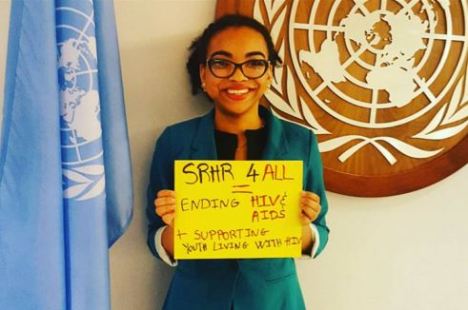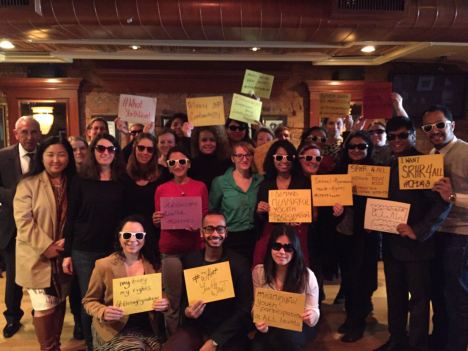By Sophia Pierre-Antoine – World YWCA Programme Associate (YWCA of Haiti)
The 49th Session of the Commission on Population and Development (CPD) was held at UNHQ in New York from 11-15 April 2016, under the Chairmanship of H.E. Ambassador Dr. Mwaba Patricia Kasese-Bota, the Permanent Representative of Zambia to the UN. The theme of the session was “Strengthening the demographic evidence base for the post-2015 development agenda”.
On April 10th, the International Sexual and Reproductive Rights Caucus/ Choice for Youth and Sexuality hosted a Youth Caucus which gave the young people attending CPD a platform to network and share strategies. At this meeting, we quickly realized that we shared goals for this CPD. For example, the need for civil society organizations to continuously have access to and participate in UN meetings and their review processes; the urgency in having sexual and reproductive health and rights accessible to youth in all their diversity; and of course, the inclusion of meaningful youth participation at all levels of discussing, planning, implementing, and monitoring/ evaluating. Zooming in on the theme of the session, we agreed that the desegregation of data was key in order to measure and therefore respond to the needs of the population, for example, the need for data on girls 10-14 years old (watch the WYWCA CPD 49 oral statement delivered here ). To be more impactful, we separated into working groups with a focus on advocacy, plenary monitoring, communications, and language. Although we were all already working on these segments for our own organizations, it was good to sit together and focus on common tasks.

Sophia Pierre-Antoine
My advice for young women who are new at participating in these big advocacy events is to make sure to read and take notes on the past sessions and the outcome documents, and familiarize yourself with the positions of both governments and civil society attending prior to attending the sessions. Also, do not be afraid to ask questions. Ask your peers, your bosses, panelists, and people from your government or regional delegation. Ask and if you don’t understand, ask again because the sessions are fast paced and loaded with coded languages so you have to be prepared to spot words that work for or against you quickly and to react even faster.
The Youth Caucus also decided to do a Twitter campaign and visual takeover to get our messages across beyond side meetings with government delegations and civil society. We wanted youth around the world to be involved in the conversations. Our message was clear and simple: highlight #WhatYouthWant , #ThroughYouthEyes at #CPD49youth.
As colleagues and youth from around the world joined us, we had tweets highlighting the theme of CPD49 on demographic data, but in majority youth tweeted for the need for comprehensive sexual education (CSE) and sexual and reproductive health and rights (SRHR) for all. Opposition soon tried to take over the hashtags but we quickly claimed it back. It’s important to remember that fighting for the rights of youth in all their diversity means also fighting for the rights of those who wholeheartedly disagree with you. Our campaign made an impact as UN offices, NGOs, and Governments, liked and retweeted our tweets. It gave us a sense of unity as feminist organizations from all over the world joined forces for one week to tweet their messages to the government delegations, civil society, and the general public. Although I was the only young woman from the Caribbean civil society, it was really powerful to meet young feminists from the Latin American region who worked in similar situations than those in my country, Haiti. Another advice for youth at international advocacy events: find likeminded people from your region, and/or who share similar struggles, you will feel less alone and your voices united could be more powerful.

Youth Caucus
Finally, I conclude by saying that we youth do deserve to continue being part of international advocacy efforts as our voices and experiences are key for the success of all initiatives. So youth, when you attend these conferences, walk with your head high because you do deserve a seat at the table, but you are also here to learn, so do your homework and do not be afraid to ask questions.
Filed under: Leadership |


Leave a comment